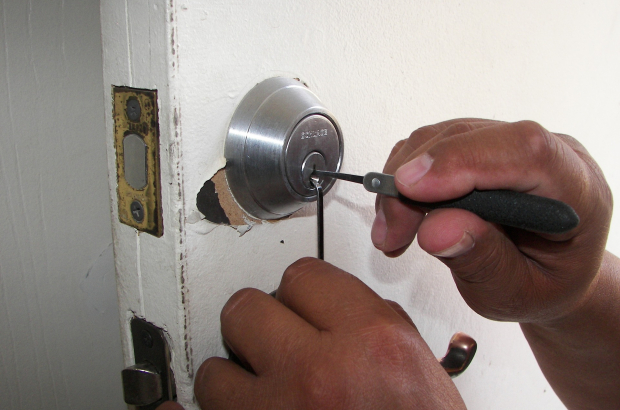- Daily & Weekly newsletters
- Buy & download The Bulletin
- Comment on our articles
New measures hope to end scams by unscrupulous locksmiths
Some of us will know the feeling of being locked out of our own home. The initial realisation of what has just happened quickly gives way to fear and anxiety. In these situations, it’s hard to think clearly and make the best decisions. Some of us would probably react in the same way as Lucas Moutiaux did when he found himself locked out. Lucas did a quick internet search on his phone and called the first locksmith he could find.
When the locksmith arrived to provide a quote for the work, Lucas suddenly wished that he had taken more time to do his research. The cost of the intervention would be €780. "I almost fainted," Moutiaux recalls.
The locksmith explained that the door was unusual and therefore would need special attention. Moutiaux decided against agreeing to the intervention but was then hit with another unpleasant surprise. The call out fee – minus any action to open the door – would cost €165. In the end, after much negotiation, the two parties agreed on a cash-in-hand deal which would result in a fee of €350, travel and labour included.
This is not an isolated case. According to Test Achats, scams involving repair companies are becoming more frequent. "We continue to be bombarded with testimonies relating to the questionable practices of repair companies," the Belgian consumer association revealed in a recent article.
The Federation of Locksmiths of Belgium also admits to receiving at least one complaint a week. "People are in a mess because they are locked out of their home," the federation’s president Michel Inghels said. “They are ready to sign anything."
According to Inghels, people should not be paying more than between €40 and €60 for a call-out. During normal office hours, the whole package - travel and labour – should rarely exceed €100. Anything more than this is “abuse,” he said.
In another example, Jean-Paul found himself locked out, called a locksmith and was quoted €500 all-in. He panicked and was in a hurry, so he agreed to the terms. After the locksmith arrived and attempted to open the door with a card – a technique which can take mere seconds if successful – the theatre began. The attempt with the card was unsuccessful and Jean-Paul was told the lock barrel would have to be replaced. The barrels the locksmith had with him were not regular ones, but top range. The bill then shot up to €900.
"Professionals are not going to ask for €800-900 for a locked door,” warned Youssef Mlouki, a locksmith from Etterbeek. “Unless they have to travel to the job from very, very far away." Rates are not imposed in the locksmith’s field, but there are recommended rates that citizens can discover on the federation's website.
It is hoped that these unscrupulous practices will disappear from January 1, 2022, when professional locksmiths will have to present their customer with an official identification card. They will only be able to obtain one by subscribing to a code of good commercial conduct and meeting the criteria of a quality label which will be awarded on the basis of skill and training. "The consumer will be able to ask the locksmith to present an identification card," according to the office of Eva De Bleeker, the Secretary of State for Consumer Protection.
Just like Moutiaux, many people use Google to search for a locksmith in their time of need, and so the search engine has become part of the discussion. Michel Inghels of the Federation of Locksmiths of Belgium revealed that in many searches, locksmiths that appear first are there because of the the fees they pay to Google to be top ranked, not because of their credibility or professionalism. "When they click on their smartphone, people come across the first three locksmiths who pay to be on Google," he said.
"In the future, the identification card could serve as a basis for being able to advertise as a locksmith on Google," the ministerial cabinet of Eva De Bleeker added.
Of course, locksmiths are not the only ones operating these scams. Other fields also have crooked professionals. "These companies often require the signing of an intervention document setting the rates and the principle of cash payment upon arrival at the consumer's home," explains Test-Achats.
"Do not rush into a decision, ask for advice from people around you, and be careful and on your guard," concluded Michel Inghels.














